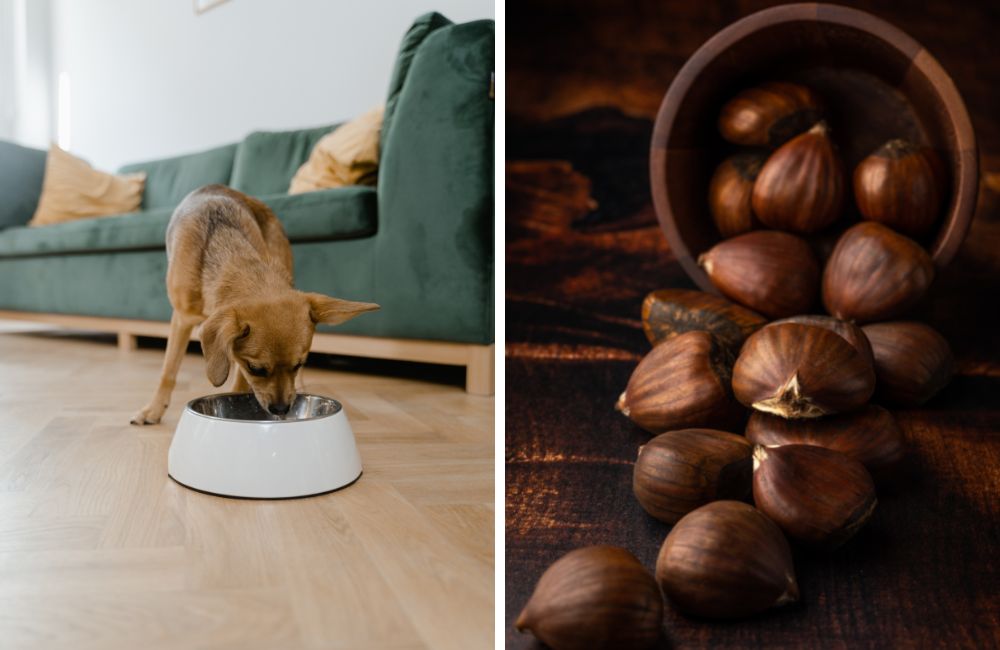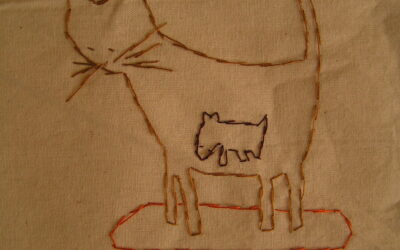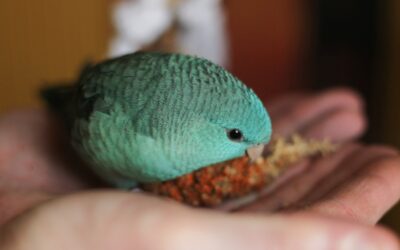Looking to add some variety to your dog’s diet? It’s September at the time of writing, which means that soon, the first chestnuts will probably be popping up in stores and markets. These delicious seeds are synonymous with Fall and actually make a very healthy snack for humans, but does the same go for our furry friends? Can dogs eat chestnuts?
Can dogs eat chestnuts?
Yes, dogs can eat chestnuts – most of them, anyway.
If you’re not sure, you should check the type of chestnut before offering a piece to your furry friend. This is because there’s one big exception to the rule of chestnuts being safe, and that’s horse chestnuts (genus Aesculus). These are also known as conkers or buckeyes, and the different types are commonly found throughout the US and beyond. They’re not actually true chestnuts, but they sure look like them if you’re not familiar with their typical brown seed pods.
Horse chestnuts can make for a fun addition to Fall décor pieces, but you should always keep them away from your dog, nor should you try to eat them yourself. With a few exceptions (properly prepared Japanese horse chestnuts are the base for a local dish called tochimochi), they are toxic. The seed pods contain saponins, notably aescin, and glucosides. Humans are unlikely to experience intense symptoms, but since dogs weigh less, ingestion is a significantly riskier for them. Luckily horse chestnuts are extremely bitter, so it’s unlikely your pooch will want to take more than an exploratory bite. Still, better safe than sorry!
Here’s what a horse chestnut looks like compared to the popular sweet chestnut that we all love to roast:
- No pointy top
- Pods have sparse, thick spikes, rather than many thin ones
- Usually only one seed per pod, as opposed to 2+
- Trees have multi-lobed leaves that are not shiny
Types of chestnuts that are safe
Now that we’ve got the unsafe chestnuts out of the way, the good news is that there are plenty of other chestnuts that are not toxic and that you can share with your dog. The most common one is the sweet chestnut from the genus Castanea. These can be recognize from their pointy tip with a little tuft, as well as their densely spiked pods. There are a few different types of sweet chestnuts, with the American chestnut (Castanea dentata) being the most common on our side of the Atlantic.
Can dogs eat water chestnuts?
Water chestnuts (which aren’t actually chestnuts at all, but an aquatic root vegetable) are also safe for dogs.
If you’ve opened a can to use in a yummy stir-fry, feel free to offer one to your dog to see if it likes it. They’re not fatty and have some fiber; most are canned in water, so salt isn’t an issue either.
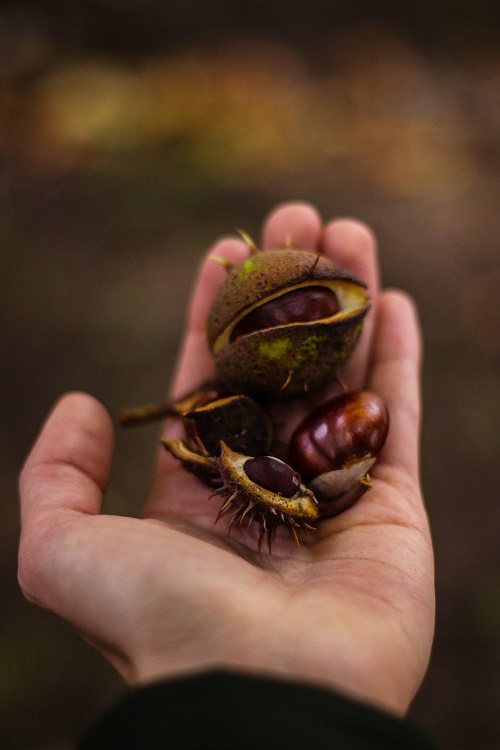
Horse chestnuts, also known as conkers, aren’t safe for dogs (or anyone for that matter).
Are chestnuts good for your dog?
Yes, sweet chestnuts are actually not a bad food choice for dogs. They shouldn’t be a staple, but if you’d like to add a little extra variety to your dog’s diet and they’re in season, feel free to go for it! As with any food you want to share with your dog, make sure not to feed any chestnuts that are candied, heavily salted or covered in chocolate.
The nutritional benefits of chestnuts include:
- Low in fat
- Not too high in calories
- High in fiber
- High in potassium (which keeps the heart, nerves and muscles going)
- High in Omega-3 fatty acids (which are good for mobility and the skin)
How to feed chestnuts
Dogs can eat raw chestnuts just fine, and yours may appreciate the crunchy texture and lightly sweet, starchy flavor. Do remember you’ll have to remove the tough brown outer layer so your furry friend can get to the actual good stuff. For the ones that like to swallow their food whole, it’s probably a good idea to cut the raw chestnut up into smaller pieces before you offer it. You can even use these pieces as training treats if your dog is a particularly big fan of them!
Most of the other chestnut preparation methods are also fine, although if you want to add salt or spices that are unsafe for dogs, make sure to prepare their portion separately from yours. Even unsweetened canned chestnut purées are not a bad choice for a bit of added variety, although fresh is the superior choice in our opinion.
Boil
To boil your chestnuts, all you have to do is score the hard outer layer and simmer for around half an hour. Once the chestnuts have cooled a little, remove the brown outer peel using a knife. There’s no need to remove the inner peel if you’re planning on offering the chestnuts to your dog – it’s high in fiber – but most people prefer to do so for their own recipes.
By the way, boiled and mashed chestnuts can be used to make some pretty darn good chestnut cookies. So be sure to keep a batch for yourself!
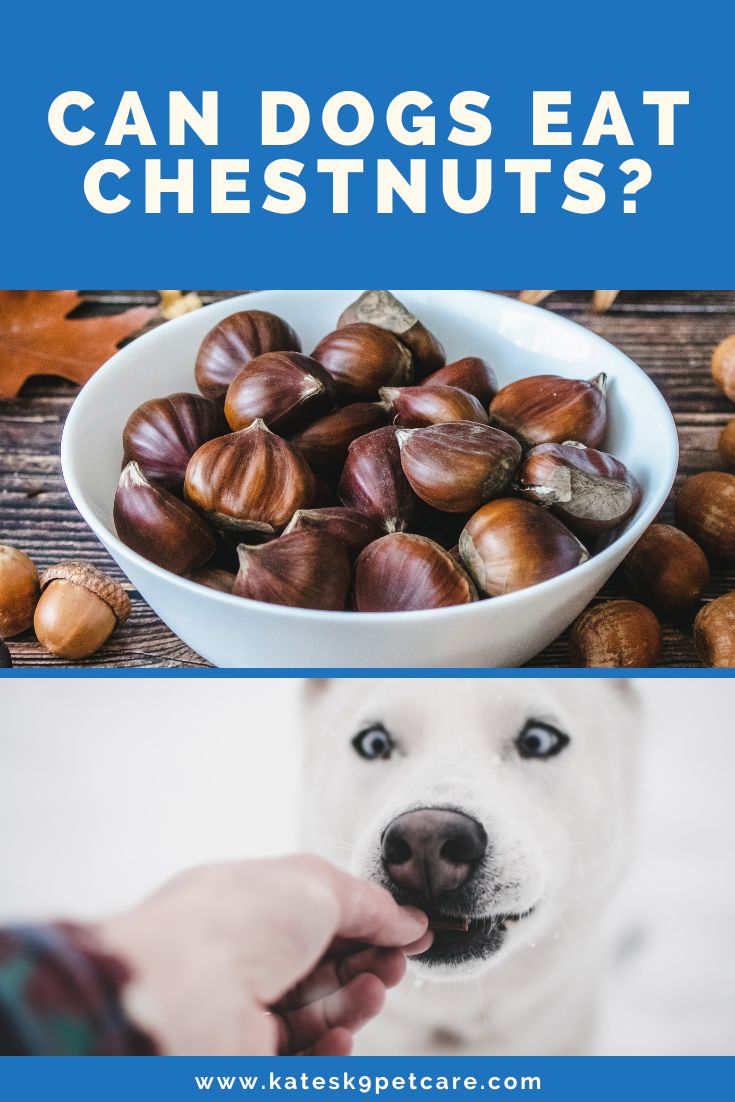
Roast
For roasted chestnuts, too, you start by scoring the touch outer layer with a knife (seriously, don’t forget, as the steam building up can make them explode otherwise. Not dangerous, but definitely messy). The traditional version is roasted over an open fire, but if you don’t happen to have one available, heating the oven to 425 °F and popping the chestnuts in there for 15-20 minutes should also do the trick just fine.
After roasting, removing the peels from your chestnuts, including the now papery inner peels, should be a breeze. Share whole roasted chestnuts with your pooch or pop them in a dehydrator and grind into powder to make chestnut flour that you can use for all sorts of tasty (dog) treat recipes.
Conclusion
So, can dogs eat chestnuts? The answer is a resounding yes. Chestnuts are a tasty and nutritious treat for your dog – as long as you avoid horse chestnuts. Be sure to share some with your pooch next Fall!
PS: if you’re looking for more fun things to do with your furry friend during this season, don’t forget to check out our article on fun Fall activities to do with your dog.

